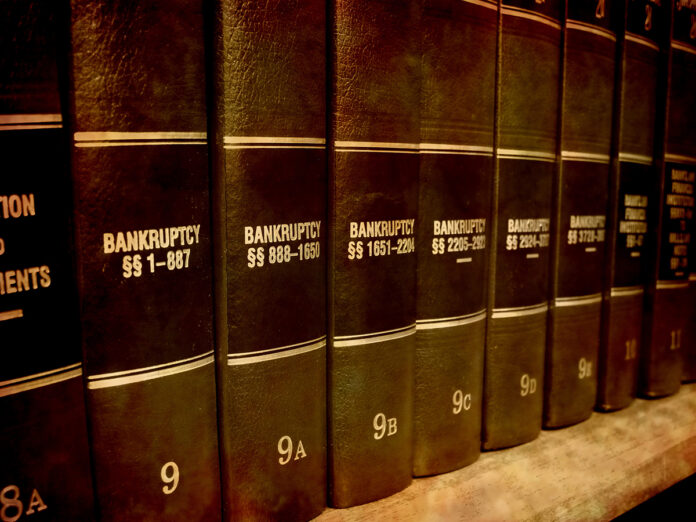Financial institutions in the United States, including state-chartered banks, are inextricably intertwined with the federal banking system and federal law. Since cannabis is considered a Schedule I drug under the Controlled Substances Act (CSA), federal law prohibits banks from providing even the most basic financial services (such as checking accounts) to cannabis-related businesses (CRBs).
Even in states that have legalized the recreational use of cannabis by adults, most banks actively avoid working with CRBs and the individuals associated with them. The result is an estimated $20-billion industry that operates largely in cash. The federal illegality of cannabis forces state law-compliant CRBs and the individuals working with them to conduct almost all their dealings in cash, creating logistical nightmares for operations as well as making every cog of the industry an obvious target for violent crime.
Federal illegality’s grave consequences
An often overlooked consequence of the federal illegality of cannabis is CRBs and the individuals associated with them have been deprived of access to the benefits of the United States bankruptcy system. Though stories of bankruptcy abuse often make headlines, the bankruptcy process provides both debtors and creditors with an orderly method to negotiate financial distress. Without the bankruptcy process, a single creditor could race to seize or dismantle a financially distressed individual or entity’s assets or business operations, sometimes leaving the debtor and all their other creditors with no recourse for repayment.
However, the Bankruptcy Code is a federal law and bankruptcy judges are federal judges. While most bankruptcy judges tend to be debtor-friendly in the early stages of cases, they nonetheless are bound to follow federal law. As presiders over courts of equity, bankruptcy judges are accustomed to creating unique solutions to solve unique problems.
But as long as cannabis remains illegal at the federal level, CRBs and those associated with them who attempt to go through the bankruptcy process essentially are seeking federal relief while admitting they have violated or continue to violate federal law by making money from cannabis-related transactions. To date, bankruptcy courts across the country simply have been unwilling to overlook that detail. More worrisome, however, is the extent to which any shred of cannabis connection can permeate and stain the availability of this much-needed process.
For example, in a case heard in the Bankruptcy Court of the District of Oregon (Case No. 19 B 30181), Holly Christine Adair, an employee of a staffing agency that placed workers with CRBs, filed a voluntary petition for bankruptcy in an attempt to avoid a foreclosure on her home after the recent death of her husband. Though her bankruptcy filing was completely and wholly unrelated to a CRB (she had no ownership interest in her staffing company employer), it became evident she would not be allowed to remain in bankruptcy protection after disclosing her job at the staffing company. Ms. Adair eventually was forced to withdraw her bankruptcy petition after an objection by the Office of the United States Trustee, a federal bankruptcy watchdog entity and part of the Department of Justice.
In addition to individuals and business entities, cities and municipalities are also specifically authorized to file for bankruptcy protection under Chapter 9 of the Bankruptcy Code. In 2021, of course, a majority of states have legalized cannabis in some way, meaning large numbers of cities and municipalities are themselves making money through sales tax revenue derived from the sale of cannabis.
As cities and municipalities deal with budget strains caused by the pandemic, the bankruptcy option may become increasingly attractive. But will bankruptcy courts allow cities and municipalities that collect taxes from CRBs to file for bankruptcy when individuals and CRBs themselves are prohibited from doing the same? While the answer to this question is unclear, the pressing need for American cities to have access to bankruptcy protection may force Congress to step in and pass more significant cannabis-related legislation of all kinds.
Many expected cannabis-related legislation to become a priority in Washington, D.C. after the recent change in presidential administrations. Though the industry has yet to see the rapid legislative advancement for which it hoped, several pieces of legislation currently working their way through Congress could grant cannabis businesses access to traditional banking services and bankruptcy protections.
STATES Act
The Strengthening the Tenth Amendment Through Entrusting States (STATES) Act would eliminate regulatory controls and administrative, civil, and criminal penalties under the CSA for CRBs and activities that comply with state or tribal law. Although this bill would eliminate penalties for banks that provide services to cannabis businesses, it would not mandate or incentivize banks to work with them.
The STATES Act would not change the legality of cannabis under federal law. Thus, more risk-averse financial institutions may still be reluctant to work with the industry. The proposed legislation would not resolve the bankruptcy issue.
SAFE Banking Act
The Secure and Fair Enforcement (SAFE) Banking Act would prevent federal regulators from penalizing banks for providing services to state-law-compliant CRBs. The proposed law would accomplish this by preventing regulators from:
- Terminating or limiting the deposit insurance or share insurance of an institution solely because it provides financial services to legitimate CRBs.
- Prohibiting or discouraging banks from offering services to CRBs.
- Punishing banks for offering services or loans to CRBs or people who own shares in them.
In addition, the legislation would mandate banks have legitimate reasons for terminating customers who are involved in cannabis businesses, such as threats to national security and involvement in terrorist financing, including state sponsorship of terrorism.
The SAFE Banking Act is narrowly designed to specifically address the cannabis industry’s lack of access to financial services. While it provides a “safe harbor” for financial institutions working with state-law-compliant CRBs, it also does not legalize cannabis under federal law and therefore does not completely open the door to financial services or bankruptcy protection.
MORE Act
The Marijuana Opportunity Reinvestment and Expungement (MORE) Act would have the greatest overall impact on the relationship between the cannabis industry, banking, and bankruptcy protection. In addition to establishing a number of much-needed social justice initiatives, the MORE Act would federally legalize cannabis and remove it from the CSA’s list of scheduled drugs.
By legalizing cannabis on the federal level, financial institutions would be free to treat banking relationships with cannabis-industry players just as they treat any other banking relationship. With cannabis as a federally legal product, no CRB or associated individual could be denied access to the nation’s bankruptcy laws simply because they have a cannabis connection.
The passage of any of these three bills would be a major step forward in cementing CRBs as legitimate business enterprises and the cannabis industry as a recognized part of the economy. It appears that only through federal legislation will CRBs and those associated with them be granted access to the nation’s bankruptcy system.













